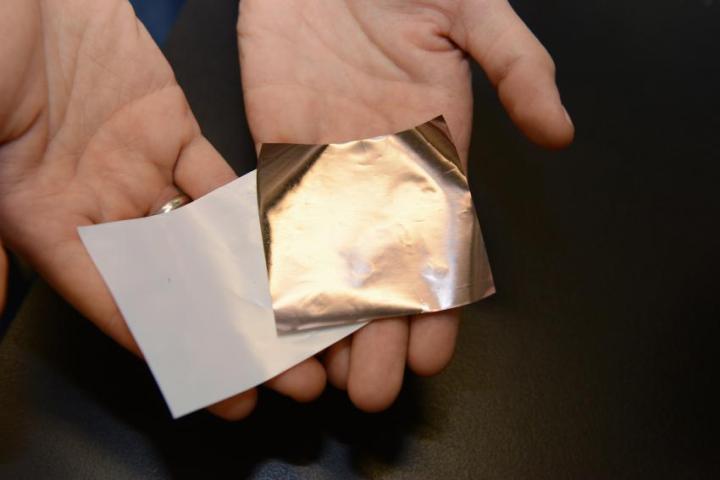
Own a laptop, phone, or wearable manufactured sometime after the mid-’90s? Chances are the rechargeable battery inside it uses lithium ion technology. Lithium-ion batteries have come to dominate the electronics market because of their energy density and cost effectiveness. But the tech isn’t without its terrifying drawbacks; as evidenced by exploding phones and laptops, grounded airplanes, and fiery car accidents, lithium-ion batteries could be a whole lot safer.
That was the focus of a recent Stanford University study described in the journal Nature Communications. The team, led by Associate Professor of Materials Science and Engineering at Stanford Yi Cui, worked to develop a “smart” lithium-ion battery that detects problems before they get explosive.
Related: Study says cost of lithium ion batteries could drop by two-thirds
Every battery, lithium ion or not, contains a negatively charged anode and a positively charged cathode. Kept separate by a thin slice of polymer, they work to generate electricity from the ions of the electrolyte which travel between them. Things start to go wrong, Cui told Phys Org, when manufacturing defects or improper charging causes the polymer separator to fail. Lithium ions clump into structures called dendrites, which make contact with the cathode and short out the battery (or worse).
The process is undetectable in conventional lithium-ion batteries, but Cui and his team developed a monitoring mechanism that uses a “smarter” separating polymer. By adding a microscopic layer of copper on one side of the polymer, they were able to measure the difference in voltage between the anode and separator, which decreases as dendrites move toward the cathode.
Encouragingly, Cui said the team’s development is material-agnostic. “It will work in any battery that would require you to detect a short before it explodes,” she said.
Denys Zhuo, co-lead author of the study, said further refinement of the method could buy crucial time in mission-critical scenarios. “When you see smoke or a fire, you have to shut [the battery] down immediately. You might not have time to escape. If you wanted to err on the side of being safer, you could put the copper layer closer to the anode. That would let you know even sooner when a battery is likely to fail.”
Related: Germans create lithium-ion EV batteries that could last for over 25 years
Though the cost of implementation could hamper adoption of the team’s technology, don’t be surprised if your future smartphone, electric car, or wearable warns you when to toss out your battery.


